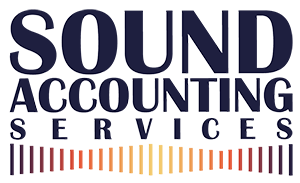Recap
Since 6 April 2014 most employers have been entitled to a reduction in the NI liability payable on their employees’ (including directors’) wages. For 2015/16 the employmentallowance (EA) is worth up to £2,000 and can be claimed by most businesses.
Trap. You can’t claim the EA against NI payable on income that’s caught by IR35, salaries paid in relation to work your business does for government bodies, or wages you pay to domestic workers.
EA winners
The good news is that in the Summer Budget 2015 the Chancellor announced that the EA will increase by 50% to £3,000 from 6 April 2016. You don’t need to take any special steps to claim the increased allowance. It will be given automatically as long as you confirm your company’s entitlement to it some time during the 2016/17 tax year.
How to claim?
When you run your first payroll after 5 April 2016, indicate your firm’s entitlement to the EA using an employer payment summary (EPS). Most payroll software, including HMRC’s Basic PAYE Tools, includes a “yes/no” indicator asking if you want to claim the EA. Choosing “yes” will generate an EPS report to submit to HMRC. After that your software will deduct the EA from your employer’s NI bill until the full £3,000 is used.
EA losers
The bad news is that the Summer Budget included a proposal to withdraw the EA from 6 April 2016 for companies where the only employee is a director. However, this might not present a problem as typically one-man companies don’t make full use of the EA anyway.
A typical one-man company
Many director shareholders, especially those of one-man companies, take most of their income in the form of dividends for the simple reason that they are more tax efficient and aren’t liable to NI. For example, the most tax and NI-efficient salary for a typical one-man company for 2015/16 is £10,600. That results in an employers’ NI bill of just over £340 per year. This is therefore the maximum saving resulting from the EA. For 2016/17 the position will be broadly similar.
Avoiding the new rule
Regardless of the potentially small impact the loss of the EA will have, it might be possible to get around the sole-director rule by, say, employing a spouse on a very low wage so that there is more than one employee. However, details of the new law won’t be available until late 2015 and we expect it to include anti-avoidance clauses to prevent this sort of arrangement. We’ll be keeping an eye on announcements and will let you know as soon as there are any developments.
Tip. Where your company ceases to qualify for the EA from 6 April 2016 because of the sole-director rule, you’ll save NI by keeping your salary at or below the annual earnings threshold. The threshold for 2016/17 hasn’t been announced yet, but is expected to be around £8,300.
Reproduced with the permission of Indicator – FL Memo Limited. For subscription information call 01233 653500
